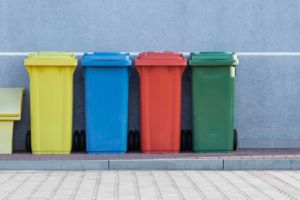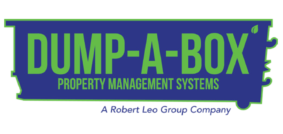4 Recycling Mistakes
Do you love recycling? The whole purpose of recycling is to reduce the impact of waste on our environment, but one recycling mistake can affect an entire line or recyclable waste. Contaminated recyclables don’t have value and may end up in the landfill in the long run, which is not good. There are dos and don’ts to help curb recycling mistakes. These rules differ depending on your area, but it is good to learn the common recycling mistakes.
1. Putting greasy recyclables in the recycling bin
One of the biggest waste recycling mistakes you can make is putting greasy recyclables in the recycling bin. You may be tossing in the right items in the recycle bin like food cans, liquid containers, and cardboards. However, these items are useless if they contain food residue, grease, and liquid contaminants.
The best way to dispose of your recyclables is to ensure that they are dry without any grease and with their caps off. Don’t let a greasy pizza box and oily food containers contaminate your recyclables.
2. Disposing of recyclables in plastic bags
It is easy to think that all plastics are recyclables, and you may see no problem disposing of your recyclables in plastic bags. The truth is that plastic bags can clog and shut down the recycling plant. It is okay to use plastic bags to store waste in your house but remove the plastic bags’ recyclables before disposing of them in the recycling bin. You can reuse your plastic bag on your next visit to the grocery store or look for programs in your city that safely handle plastic bags.

3. Not knowing what to recycle
Another grave recycling mistake you can make is not knowing what to recycle. As an individual, you have a role in reducing the carbon footprint on our planet. And for this reason, you must educate yourself on recycling. Are you aware that you can’t recycle takeaway food plastic containers like disposable cups? Or that you can’t recycle all types of glass? Not all items are recyclable, and that is why it is vital to check with your local recycling programs and learn more about things to recycle.
4. Putting wet papers, cardboards, and magazines in the recycling bin.
Papers, cardboards, and magazines are recyclable, but not when they are wet or greasy. Moisture on cardboard or papers weakens the fibers making them less valuable, forcing them to end up at the landfill. Carefully sort your paper materials and cardboards to ensure that not even one has moisture before tossing it in the curbside recycling container. You can let your papers dry if they are wet before sending them for recycling. If you don’t have the time to let your cardboards and papers dry, you can toss them in the compost bin.
Avoid recycling mistakes and recycle smart.
Learning the right way to recycle is the first step to going green. According to experts, the rate of recyclables contamination is high at 25%, pushing the recycling economy to the edge. Contaminated recyclables cause huge costs of processing and affect the quality of the end product.
As a community member passionate about recycling, you can help by ensuring that recyclable materials are of good quality. Be cautious of the things you toss in the recycling container at all times.
Do you need help with your waste and recycling? Dump A Box is here for you. We offer full waste management to residential homeowners and business owners with our 6, 10, 15, and 20 trash containers. From construction junk to household waste, our team can help you get rid of waste and recycle responsibly. Call or book online today.

